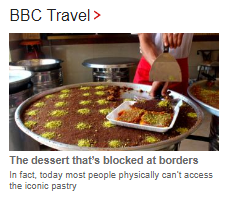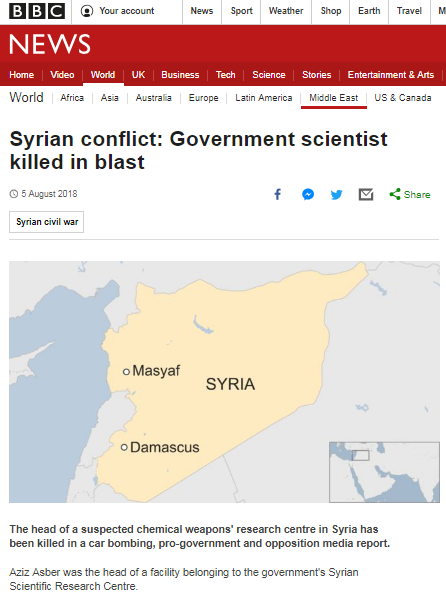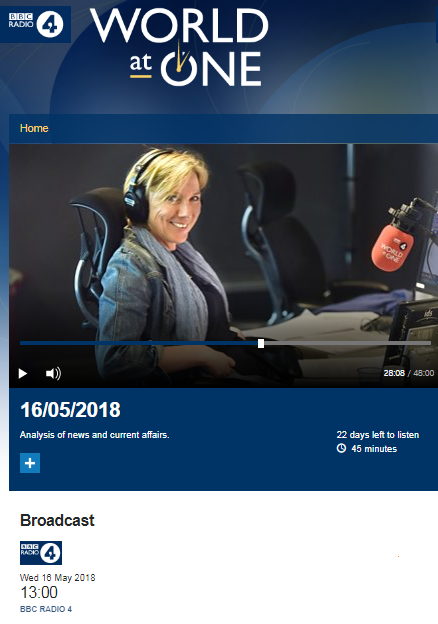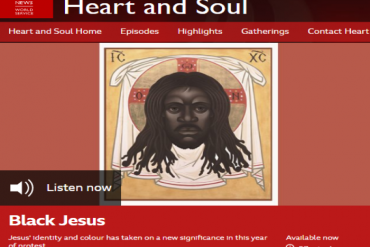August 3rd saw the appearance of yet another BBC Travel article belonging to the genre of ‘food as a hook for political messaging’ on the BBC News website’s Middle East page and – like the previous example – this one too was written by a freelancer – Miriam Berger – rather than by BBC staff.

Titled “The Palestinian dessert few can enjoy“, nearly half of the article’s 1,037 words are devoted to political topics rather than the Middle Eastern sweet (confusingly presented in this piece with three different names: knafa, kunafa and knafe) that is supposedly its subject matter.
That becomes rather less surprising when one is aware that the quoted ‘culinary expert’ Laila el Haddad is in fact a long-time anti-Israel activist who has used food for the promotion of her political narrative in the past – including at the BBC.
“Today you need a hard-to-procure permit to enter or exit Gaza. […]
“[Knafa Arabiya] reflects Gaza itself,” said Laila El-Haddad, author of The Gaza Kitchen. “It’s a more rustic dessert that’s richly spiced.”
She added, “In modern times, as it’s [Gaza] become more closed off, these flavours have become relatively unknown, even to other Palestinians.”
In fact, today most people physically can’t access the dessert. After decades of rule by the Turks, Brits and Egyptians, Israel then occupied Gaza from 1967 to 2005; two years later Hamas, a designated terror group, violently seized power from its rival, the more moderate Palestinian Authority (PA) based in the West Bank. Israel and Egypt then imposed travel and trade blockades on Gaza. Over the last nine years, Israel and Hamas have fought three devastating wars; many in Gaza have still not recovered from the last one three years ago.
Today, Israel restricts most border crossings. At the Erez crossing in southern Israel, the only point of entry and exit for people between Gaza, Israel and the Palestinian West Bank, “Food is not permitted to be exported from Gaza for regulatory purposes,” according to Israel’s Coordination of Government Activities in the Territories. Informally, however, half a kilo or a kilo of sweets – or about two big plates of Knafa Arabiya – will get through.”
Of course many countries restrict the import of foodstuffs by travellers for reasons of pest and disease control but in other locations such rules do not usually prompt half-baked politicised articles.
The writer does not bother to inform readers of the Hamas terrorism that brought about not only counter-terrorism measures in the form of border restrictions but also the “three devastating wars” she mentions. The piece goes on to give an equally context-free portrayal of the Gaza electricity crisis caused by internal Palestinian feuding.
“When I visited Abu al Saoud’s shop in July, times were tough and getting tougher. Gaza was a month deep into a severe electricity crisis that left the strip’s two million people with just two to three hours of power a day – down from only eight hours in the months before. The lucky ones, like Abu al Saoud, can keep lights on longer with generators. Even at just five shekels per slice – the same price as in Nablus – the knafe is unaffordable for many in Gaza, which has some of the highest unemployment in the world.”
As we see, BBC Travel’s promotion of sub-text political messaging in ‘life-style’ articles that potentially reach audiences less familiar with the political ins and outs of the Middle East continues.
Related Articles:
BBC Travel politicises food to promote a narrative
LA Times, Gaza Kitchen Cooking Up Falsehoods (CAMERA)
A fishy tale of literary promotion by the BBC




